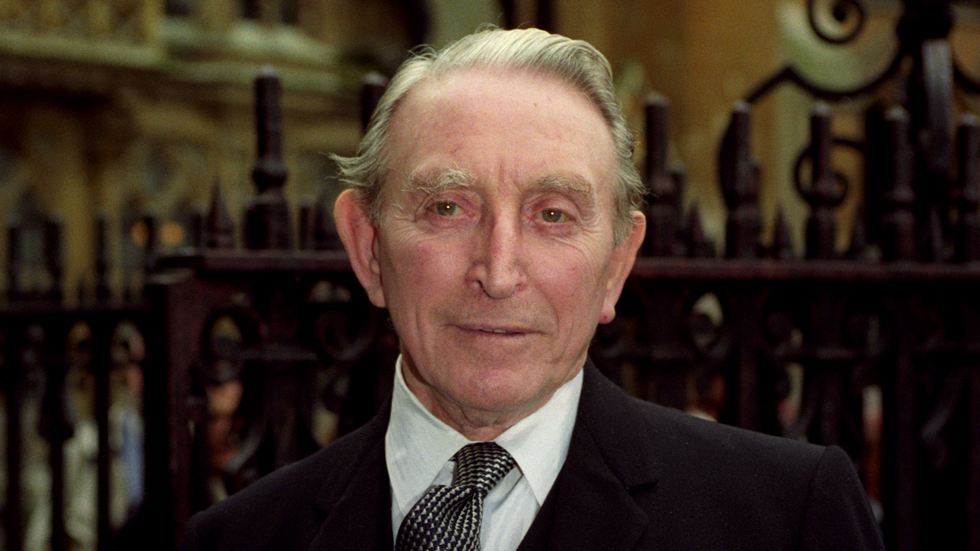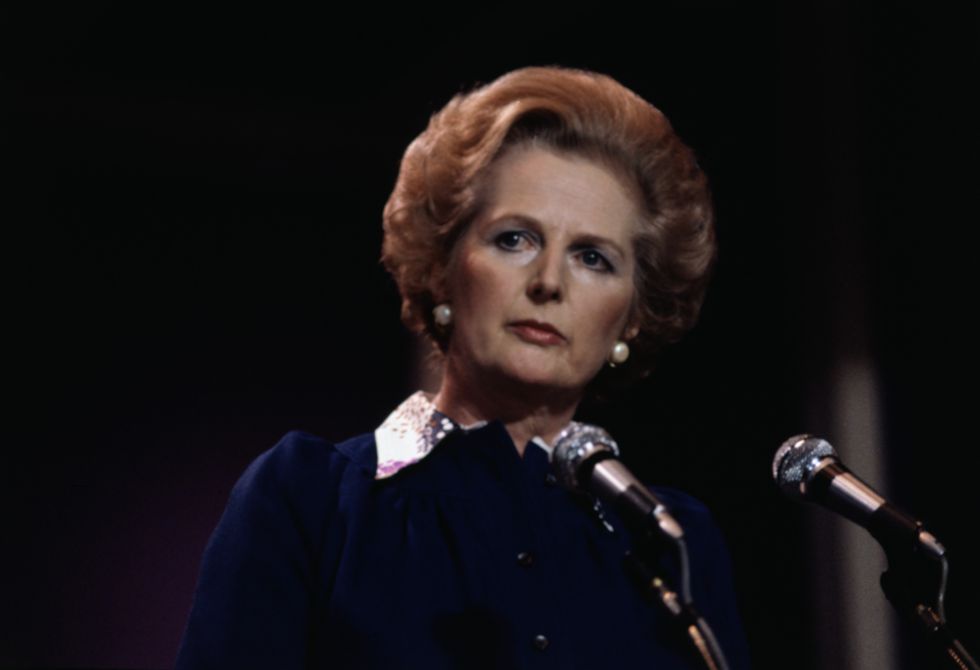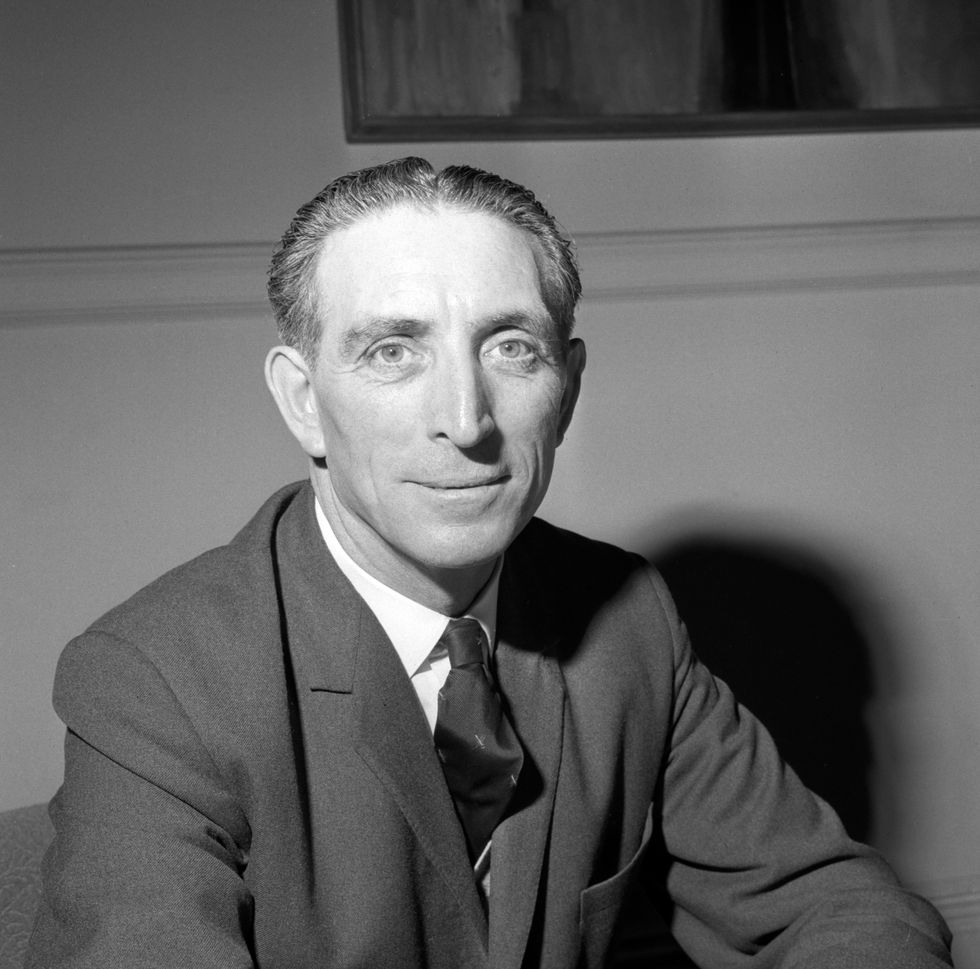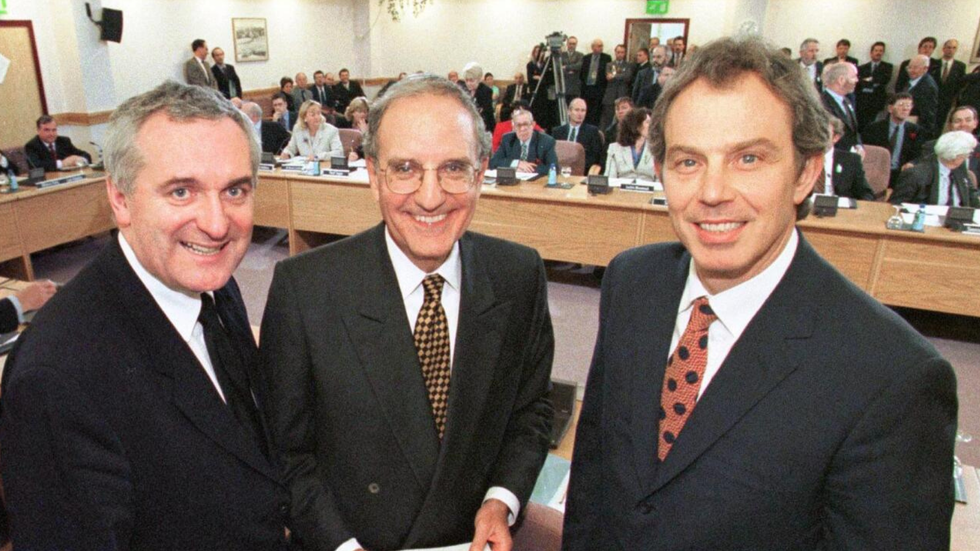James Saunders
Guest Reporter
The Irish government thought former House of Commons speaker George Thomas was "too bitchy" to lead peace talks, new documents show.
George Thomas, the Viscount Tonypandy, had been proposed to chair crucial Anglo-Irish peace talks in 1991 - but was deemed "bitchy" and "petulant" by Irish officials, newly unsealed documents from the National Archives in Dublin reveal.
Lord Tonypandy, as Thomas was known after his elevation to the House of Lords, was one of nine names put forward by the British Government and unionists to chair talks between Dublin and Northern Irish parties.
But Irish officials described him as "widely disliked" by MPs in a briefing note from the Republic's Department of Foreign Affairs.

The documents show officials were particularly concerned about his tendency to "not forgive slights, alleged or real."
The briefing documents also alleged Thomas also displayed "a large streak of sycophancy" towards then-Prime Minister Margaret Thatcher.
This behaviour led one senior journalist to privately describe him as "a kind of Welsh Uncle Tom", according to the records.
The revelations came as Irish officials were considering candidates to chair the Strand Two talks, which would later form a crucial part of establishing North-South cooperation in the Good Friday Agreement.
The assessment was part of a broader evaluation of potential chairs proposed by both the British Government and unionists during a sensitive period of Anglo-Irish negotiations.
MORE FROM IRELAND:

Lord Michael Havers, another proposed candidate, received mixed reviews from Irish officials who found him "relaxed, urbane and good-humoured."
However, his involvement in prosecuting the Guildford Four and Maguire Seven cases was noted as a significant "blemish on his legal reputation."
Former Northern Ireland Secretary Merlyn Rees was described as warm and likeable, with a wife of "Irish origin."
Yet the documents dismissed him as "often muddle-headed" with "unmistakable" unionist sympathies.

And Former British Foreign Secretary David Owen was ruled out by the Irish side for being "arrogant, impatient and difficult to work with."
The suggestion of former Irish Labour Party minister Conor Cruise O'Brien was dismissed as "hardly a serious suggestion" due to his pro-unionist views.
The Irish government had proposed several alternative candidates, including former Labour deputy leader Denis Healey, who had Irish descent.
Former Australian prime minister Gough Whitlam was also suggested, noted for having a "very benevolent interest in Ireland."

Canadian high commissioner Roy McMurtry had been informally approached but was ruled out after Democratic Unionist Party leader Ian Paisley objected.
The talks were ultimately chaired by former Governor-General of Australia Sir Ninian Stephen, who had not featured among the original candidates discussed.
Find Out More...
George Thomas, the Viscount Tonypandy, had been proposed to chair crucial Anglo-Irish peace talks in 1991 - but was deemed "bitchy" and "petulant" by Irish officials, newly unsealed documents from the National Archives in Dublin reveal.
Lord Tonypandy, as Thomas was known after his elevation to the House of Lords, was one of nine names put forward by the British Government and unionists to chair talks between Dublin and Northern Irish parties.
But Irish officials described him as "widely disliked" by MPs in a briefing note from the Republic's Department of Foreign Affairs.

The documents show officials were particularly concerned about his tendency to "not forgive slights, alleged or real."
The briefing documents also alleged Thomas also displayed "a large streak of sycophancy" towards then-Prime Minister Margaret Thatcher.
This behaviour led one senior journalist to privately describe him as "a kind of Welsh Uncle Tom", according to the records.
The revelations came as Irish officials were considering candidates to chair the Strand Two talks, which would later form a crucial part of establishing North-South cooperation in the Good Friday Agreement.
The assessment was part of a broader evaluation of potential chairs proposed by both the British Government and unionists during a sensitive period of Anglo-Irish negotiations.
MORE FROM IRELAND:
- 'Illusion of democracy!' Unionists fume after 'rigged vote' sees Stormont extend hated Brexit trade agreement
- 'Ireland's people demand an answer on immigration' - Dougie Beattie reveals TRUTH from communities with real fears and concerns
- Unionists trigger 'emergency' Brexit clause as DUP 'makes no secret' about resisting EU overreach

Lord Michael Havers, another proposed candidate, received mixed reviews from Irish officials who found him "relaxed, urbane and good-humoured."
However, his involvement in prosecuting the Guildford Four and Maguire Seven cases was noted as a significant "blemish on his legal reputation."
Former Northern Ireland Secretary Merlyn Rees was described as warm and likeable, with a wife of "Irish origin."
Yet the documents dismissed him as "often muddle-headed" with "unmistakable" unionist sympathies.

And Former British Foreign Secretary David Owen was ruled out by the Irish side for being "arrogant, impatient and difficult to work with."
The suggestion of former Irish Labour Party minister Conor Cruise O'Brien was dismissed as "hardly a serious suggestion" due to his pro-unionist views.
The Irish government had proposed several alternative candidates, including former Labour deputy leader Denis Healey, who had Irish descent.
Former Australian prime minister Gough Whitlam was also suggested, noted for having a "very benevolent interest in Ireland."

Canadian high commissioner Roy McMurtry had been informally approached but was ruled out after Democratic Unionist Party leader Ian Paisley objected.
The talks were ultimately chaired by former Governor-General of Australia Sir Ninian Stephen, who had not featured among the original candidates discussed.
Find Out More...
